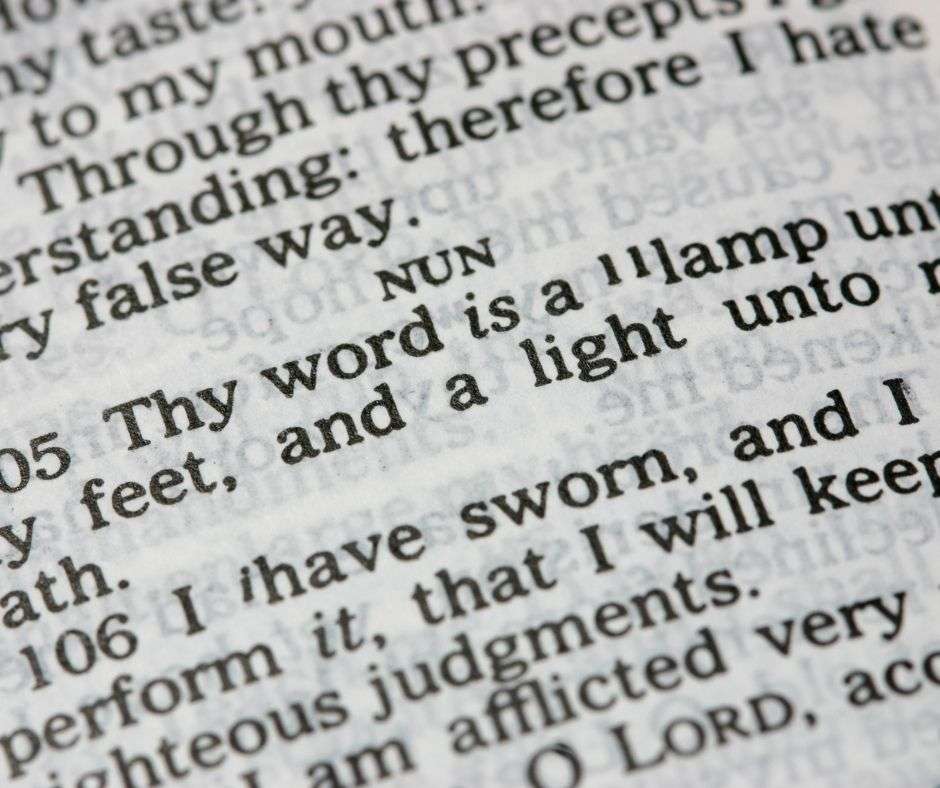Psalms have been for, thousands of years, a musical expression of faith — first for the Jewish people, and today Christians as well. In these 150 texts, we find the full range of human emotion: joy, sadness, doubt, confidence, lament, praise, thanksgiving, and more. These passions are embedded in our relationship with the Divine and the psalms not only encompass them, not only express them but help us to connect with and musically converse with our Creator and the whole of the Christian Community.
Some were written to accompany royal pageantry, some to accompany the lowest moments of despair and exile. Some of the psalms are very short: Psalm 117 has 25 words in our liturgical translation. Some are, on the other hand, very long: Psalm 119 has over 2,000 words across 176 verses! They are created in different formal structures, utilizing tools of poetry such as parallelisms, acrostics, and more.

How many psalms?!
Yet with all of this variety in content, purpose, and structure, most of the faithful only experience the psalms in a limited way, as the responsorial psalm at Sunday eucharist. This particular use is not inherently bad, mind you, just very constricted. Even across a three-year cycle of readings, one will not hear each of the 150 psalms — indeed one will hear certain psalms several times over. Further, the psalms that are heard frequently only offer perhaps seven or eight verses of what is usually a longer text (Psalm 40 for example). Of course, a much broader selection of psalms is utilized at daily masses, though typically to a much smaller congregation.
Yet these important texts of our faith can rather easily find their way into worship in a more full and robust way. One of these is of course through psalm-based hymnody. While frequently these adaptations of psalm texts make them unsuitable for use as the responsorial psalm, using hymns based on psalmody can help the singer approach a given psalm through a unique perspective which can allow for previously unknown interpretations and insights, and a deepening of the faith experience. SLM has many such pieces, such as In the Palm of Your Hand by Kathleen Basi. This hymn explores the richness of psalm 139.
Antiphons
For each Sunday, the Church has also a prescribed entrance and communion antiphon. These texts are frequently (though not always) drawn from the psalms. Even when they are not, these antiphons are meant always to be paired with a corresponding psalm text. Some of us will recall days not long ago where refrains of hymns were at least sometimes called antiphons; these proper antiphons for each liturgical celebration can and should be used in such a way, if one deems the antiphons fruitful for the worship of the local community.
Liturgy of the Hours
Eucharist is not the only liturgy the Church offers us, either. The Liturgy of the Hours (sometimes called the Divine Office) is a profound experience of prayer built on praying the psalms and other canticles — hymns found elsewhere in sacred scripture. Indeed, these liturgies, such as morning, midday, evening, or night prayer, give to those praying them a fullness of each psalm not found at eucharist and puts all of those rich words on the lips of the faithful in a way the responsorial psalms do not.
Many parishes have found success in praying the liturgy of the hours during Advent or Lent, perhaps on Sunday evenings. Some utilize this form of prayer when for whatever reason celebrating the eucharist is not an option. Liturgy of the Hours is easily led by any member of the faithful community and is not dependent on the presence of an ordained minister. One can even pray these prayers on one’s own.
Orin’s Fun Fact
It’s worth a brief aside here to note that our more devotional prayer, the Rosary, has roots in the Liturgy of the Hours! Centuries ago, local faithful would note the religious living in community near them praying the 150 psalms in the Divine Office, and were interested in pursuing the practice, even if a lack of education and literacy made that impossible.
Observe that if one prays the original three sets of mysteries of the rosary, each with its five decades of ten Hail Mary prayers recited, that once complete, 150 Hail Mary’s will have been recited — the same as the total number of psalms! This aside is not to place these two forms of prayer in opposition, of course! Each has its place and a certain efficacy for each member of the faithful, at different times.

Indeed, the psalms in a way constitute our first “hymnal” for worship and to this day continue to be not only foundational but a living and vital part of our Christian liturgies and spiritual practices. Do not ignore the opportunities given to allow them to inform and expand our relationship with God and with one another, and to deepen our faith as well!

I do agree with all the concepts you have offered to your post.They’re very convincing and will definitely work.Nonetheless, the posts are very short for newbies. May you please prolong them a little fromnext time? Thanks for the post.Very good post! We will be linking to this great article on our website.Keep up the good writing.Also visit my weblog: pirater un compte facebook gratuitement